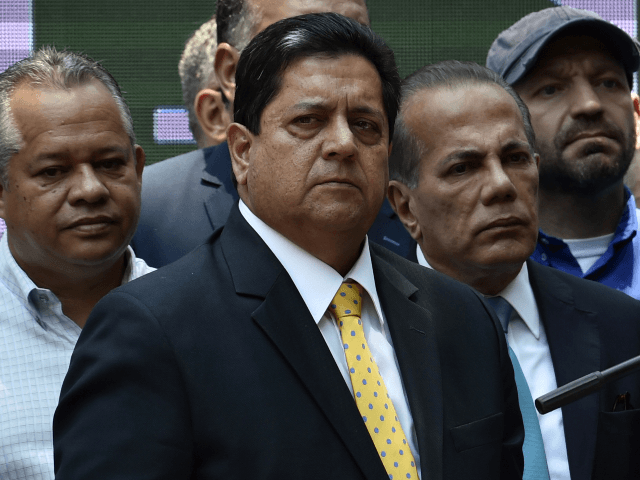Venezuelan President Juan Guaidó’s deputy, Edgar Zambrano, has been on a hunger strike for the past nine days following his incarceration in May by the Maduro regime, his party’s general secretary revealed on Thursday.
The Secretary-General of the Democratic Action Party, and a vice president of the Socialist International, Henry Ramos Allup announced that Zambrano had undertaken the hunger strike to demand improved living conditions in his military prison of Fort Tiuna and the release of his personal assistants.
“Edgar Zambrano, Vice President of the National Assembly and of Democratic Action, has been on hunger strike for 9 days in Fort Tiuna,” wrote Allup. “His demands: family visitation, acceptable living conditions and release of his four imprisoned assistants in the Helicoide without having committed a crime. He was last hydrated 48 hours ago.”
The strike was later confirmed by Guaidó himself, who said that Zambrano was fighting for the “rights of all Venezuelans.”
“The First Vice-President of the National Assembly Edgar Zambrano is on hunger strike for the rights of all Venezuelans, his fellow prisoners abducted with him and all political prisoners,” he wrote. “His struggle, and that the struggle for Venezuela, must continue.”
Zambrano was arrested by Venezuelan Secret Police (SEBIN) in May in the aftermath of a failed military uprising by Juan Guaidó, towing him away in his car towards the Heliocide prison facility. He was later charged with “betraying the homeland” and “instigating an insurrection” against the regime.
The 63-year-old deputy is one of the various figures close to Juan Guaidó facing imprisonment following his recognition by the United States and most other Western democracies as the legitimate President of Venezuela.
In March, SEBIN agents kidnapped Guaidó’s Chief of Staff Robert Marrero, accusing him of possessing illegal weaponry. This week, the regime also detained two of Guaidó’s personal bodyguards on similar charges, claiming they had been “negotiating the sale of five AK-103 spearguns” to soldiers who planned on carrying out a rebellion against the socialist regime.
In an interview this month, the former head of SEBIN, Manuel Cristopher Figuera, revealed how Maduro would personally order him to arrest members of Guaidó’s entourage on false charges such as illegal possession of weapons or supposed terrorism. At one point, Maduro reportedly wanted to arrest Guaidó’s mother but was eventually persuaded out of the idea on the grounds she was suffering from cancer.
Conditions in Venezuelan prisons are notoriously harsh, with most inmates subject to appalling living standards and threats to their safety. As noted by Human Rights Watch, “Corruption, weak security, deteriorating infrastructure, overcrowding, insufficient staffing, and poorly trained guards allow armed gangs to exercise effective control over inmate populations.”
There has also been a significant rise in the number of political prisoners, many of whom are tortured and subject to other egregious human rights violations, as the Maduro regime seeks to consolidate its authority by intimidating opposition activists and politicians.
Follow Ben Kew on Facebook, Twitter at @ben_kew, or email him at bkew@breitbart.com.

COMMENTS
Please let us know if you're having issues with commenting.